The call came at 7 AM. Our largest client—representing 40% of our revenue—was terminating its contract, effective immediately. As I sat on the edge of my bed, the phone still warm against my ear, I felt that familiar tightness in my chest. The same suffocating sensation I’d experienced when we nearly lost everything to that $65,000 AWS bill.
But this time was different. Instead of spiraling into weeks of paralysis, I found myself reaching for something I’d built over years of entrepreneurial battles: my mental toughness toolkit. Within 24 hours, I’d processed the shock, created an action plan, and rallied my team around a pivot that would eventually lead us to stronger, more diversified revenue streams.
The difference? I’d learned that developing entrepreneurial mental toughness isn’t about becoming emotionally invulnerable—it’s about building a first-aid kit for your mind that helps you recover faster and stronger from every crisis.
The Hidden Crisis Every Entrepreneur Faces
Here’s what they don’t tell you in startup accelerators: 72% of entrepreneurs report mental health concerns, according to research from UC Berkeley. The entrepreneurial journey isn’t just about market fit and funding rounds—it’s about developing the psychological resilience to withstand repeated blows to your confidence, bank account, and sense of self.
Most founders approach mental toughness backward. They think it means suppressing emotions, pushing through pain, and never showing weakness. But as James Schramko and Lloyd Thompson explain in their work on mental toughness exercises, true mental toughness is about developing daily rituals that rewire your brain for positivity while building practical recovery systems.
The real challenge isn’t avoiding crises—they’re inevitable in entrepreneurship. The challenge is building a mental framework that helps you process disappointment quickly, recover your emotional balance, and maintain forward momentum even when everything seems to be falling apart.
Understanding the Entrepreneurial Mental Toughness Framework
Mental toughness for entrepreneurs isn’t the same as mental toughness for athletes or military personnel. We face a unique set of psychological challenges: constant uncertainty, personal financial risk, a sense of identity fusion with our ventures, and the weight of others’ livelihoods on our shoulders.
Research on the psychology of entrepreneurship by Herrick Lipton identifies four key components that entrepreneurs must develop:
- Resilience – The ability to bounce back from setbacks
- Focus – Maintaining clarity despite chaos
- Confidence – Believing in your ability to find solutions
- Performance Under Pressure – Delivering when stakes are highest
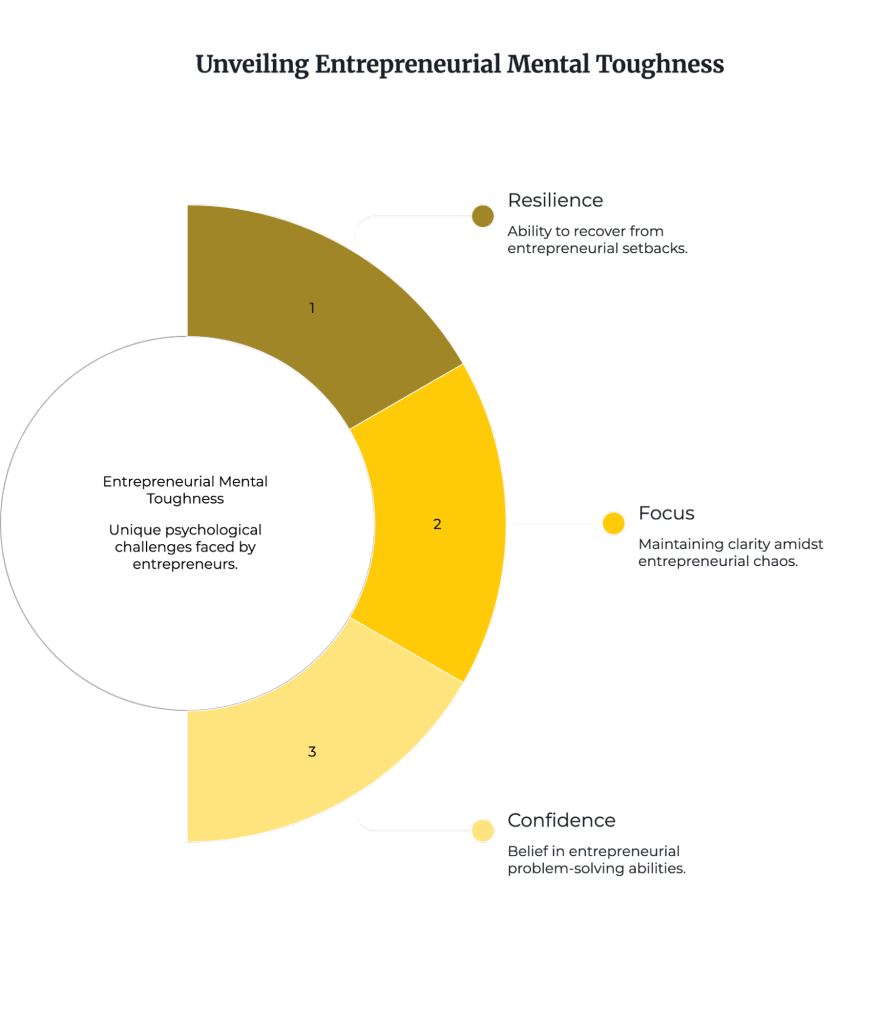
But here’s what most frameworks miss: entrepreneurial mental toughness isn’t just about enduring—it’s about transforming. Every crisis becomes an opportunity to upgrade your mental operating system.
My Journey from Mental Fragility to Entrepreneurial Strength
Let me share the transformation that made the difference between my first major crisis and my most recent one.
During our AWS billing crisis in 2018, I spent three weeks paralyzed by what I now recognize as the thoughts-emotions loop. Each negative thought (“We’re going to fail”) triggered stronger emotions (panic, shame), which generated more catastrophic thoughts. I was trapped in my own mind, unable to see solutions that were right in front of me.
The turning point came when I discovered what mental health professionals call the “4 C’s” framework:
- Control – Focus only on what you can influence
- Commitment – Stay dedicated to your values and goals
- Challenge – View difficulties as opportunities to grow
- Confidence – Trust in your ability to find solutions
But knowing these concepts intellectually wasn’t enough. I needed practical tools—a mental first-aid kit I could reach for in moments of crisis.
Building Your Mental Toughness First-Aid Kit
1. The Immediate Response Protocol
When crisis hits, your first 30 minutes determine whether you’ll spiral or stabilize. Here’s the protocol I’ve refined through multiple business crises:
The STOP Technique:
- Stop – Physically pause what you’re doing
- Take a breath – Use box breathing (4 counts in, 4 hold, 4 out, 4 hold)
- Observe – Notice physical sensations and emotions without judgment
- Proceed – Choose your following action consciously
Research on emotional resilience by Aaron Hall shows that this simple intervention can reduce cortisol levels and improve decision-making clarity within minutes.
2. Processing Disappointment Without Losing Momentum
The key to processing disappointment effectively is to feel it fully without letting it define your future. Here’s the framework I use:
The 24-Hour Disappointment Protocol:
Hours 0-2: Feel It
- Allow yourself to experience the full emotional impact
- No decisions, no catastrophizing, just feeling
- Physical movement helps: walk, run, or even just pace
Hours 2-6: Frame It
- Write down exactly what happened (facts only)
- Identify what was within your control vs. outside it
- List three possible positive outcomes from this situation
Hours 6-24: Forward It
- Create three actionable next steps
- Reach out to one trusted advisor or peer
- Do one small thing that moves you forward
As successful entrepreneurs have discovered through experience, the secret isn’t avoiding disappointment—it’s processing it efficiently so it becomes fuel rather than an anchor.
3. The Thoughts-Emotions Circuit Breaker
When you notice yourself spiraling, you need a circuit breaker—something that interrupts the negative loop immediately. Here are three techniques that work:
Pattern Interrupt Techniques:
- The 5-4-3-2-1 Grounding Method
- Name 5 things you can see
- 4 things you can touch
- 3 things you can hear
- 2 things you can smell
- 1 thing you can taste
- The Physiological Reset
- Cold water on face and wrists
- 20 jumping jacks or pushups
- Loud music with movement for 3 minutes
- The Perspective Shift
- Call a friend and help them with their problem
- Write advice to yourself as if you were mentoring someone else
- Zoom out: “Will this matter in 5 years?”
4. Building Daily Mental Resilience
Mental toughness isn’t built in crisis—it’s built-in daily practice. Research on mental health strategies for entrepreneurs emphasizes these daily practices:
The Daily Mental Fitness Routine:
Morning (10 minutes):
- Gratitude practice: Write 3 specific appreciations
- Intention setting: One key focus for the day
- Visualization: See yourself handling challenges well
Midday (5 minutes):
- Energy check-in: Rate your mental/emotional state 1-10
- Micro-meditation: 5 deep breaths with full attention
- Adjust: One small change to improve your state
Evening (10 minutes):
- Win documentation: Three things that went well
- Learning extraction: One lesson from any challenges
- Tomorrow’s gift: One thing to look forward to
Your Personalized Emotional Recovery Plan Template
Based on evidence-based recovery planning methods and adapted specifically for entrepreneurs, here’s a template for creating your own mental toughness first-aid kit:
Part 1: Know Your Triggers
My Early Warning Signs:
- Physical: (e.g., tension headaches, insomnia, appetite changes)
- Emotional: (e.g., irritability, anxiety, feeling overwhelmed)
- Behavioral: (e.g., avoiding emails, procrastinating, isolation)
My Common Crisis Triggers:
- Financial: ________________
- Team-related: ________________
- Customer/client: ________________
- Personal/family: ________________
Part 2: My Recovery Toolkit
Immediate Response Tools (0-2 hours):
- My STOP technique variation: ________________
- My physical reset activity: ________________
- My emergency contact person: ________________
Short-term Recovery Tools (2-24 hours):
- My processing method: ________________
- My perspective shift technique: ________________
- My one guaranteed mood lifter: ________________
Ongoing Resilience Tools (Daily):
- My morning routine: ________________
- My evening routine: ________________
- My weekly resilience activity: ________________
Part 3: My Support System Activation Plan
Inner Circle (immediate support):
- Person 1: ____________ (Role: _________)
- Person 2: ____________ (Role: _________)
Professional Support:
- Mentor/Advisor: ________________
- Therapist/Coach: ________________
- Peer group: ________________
Self-Support Resources:
- Favorite resilience book/podcast: ________________
- Go-to meditation/app: ________________
- Physical activity that helps: ________________
Part 4: My Bounce-Back Protocol
After a Minor Setback:
After a Major Crisis:
Integrating Mental Toughness Into Your Entrepreneurial Operating System
The goal isn’t to become crisis-proof—it’s to become crisis-adaptive. As research on entrepreneurial resilience shows, the most successful entrepreneurs aren’t those who avoid failure but those who recover and learn faster.
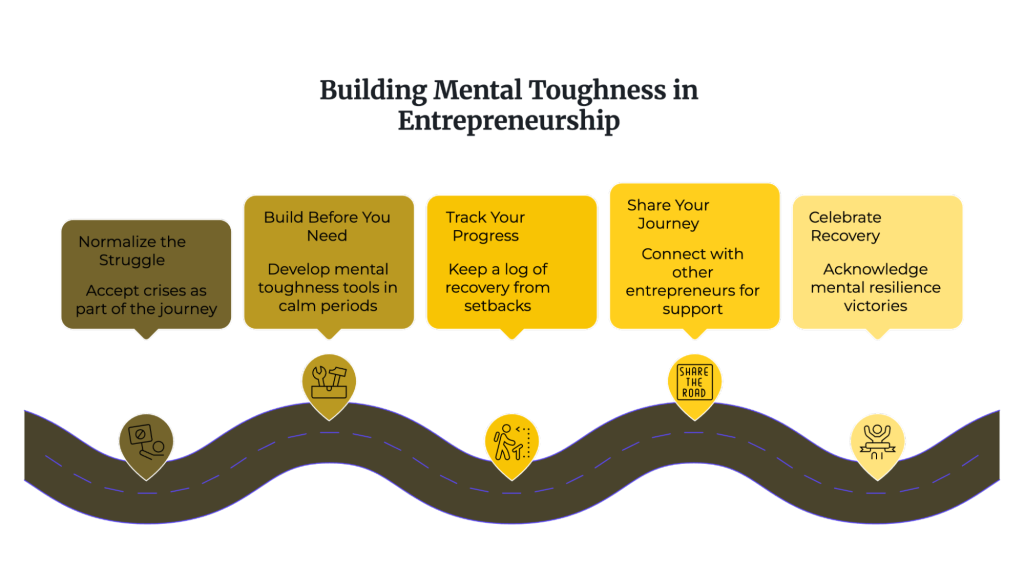
Here’s how to make mental toughness part of your entrepreneurial DNA:
- Normalize the Struggle: Accept that crises are part of the entrepreneurial journey, not signs of personal failure
- Build Before You Need: Develop your mental toughness toolkit during calm periods, not in the middle of storms
- Track Your Progress: Keep a simple log of how quickly you recover from setbacks—you’ll be amazed at your improvement
- Share Your Journey: Vulnerability with other entrepreneurs creates connection and accelerates learning
- Celebrate Recovery: Acknowledge not just business wins but mental resilience victories
The Path Forward: From Survival to Antifragility
Two years after developing my mental toughness toolkit, I faced an even bigger crisis than the client loss I mentioned at the beginning. Our acquisition deal fell through two hours before signing, after months of due diligence. The company that had seemed like our salvation had just pulled the rug out from under us.
But instead of spiraling, I activated my recovery protocol. Within 24 hours, I had processed the disappointment, reframed the situation as an opportunity, and began shopping our LOI to other potential buyers. Three months later, we closed a deal with better terms than the original.
The difference wasn’t that I didn’t feel the pain—I did. The difference was that I had tools to process it quickly and transform it into fuel for the next chapter.
Mental toughness for entrepreneurs isn’t about becoming harder—it’s about becoming more skillfully human. It’s about building systems that honor both your ambitions and your emotional reality, creating a sustainable path through the inevitable storms of entrepreneurship.
Your mental first-aid kit won’t prevent crises, but it will transform how you experience and grow from them. And in entrepreneurship, that makes all the difference between those who burn out and those who build something lasting—both in business and in themselves.
Ready to build your mental resilience toolkit? Download our comprehensive “Mental Resilience Workbook” with exercises, templates, and daily practices designed specifically for entrepreneurs navigating the thoughts-emotions loop and building sustainable mental strength.



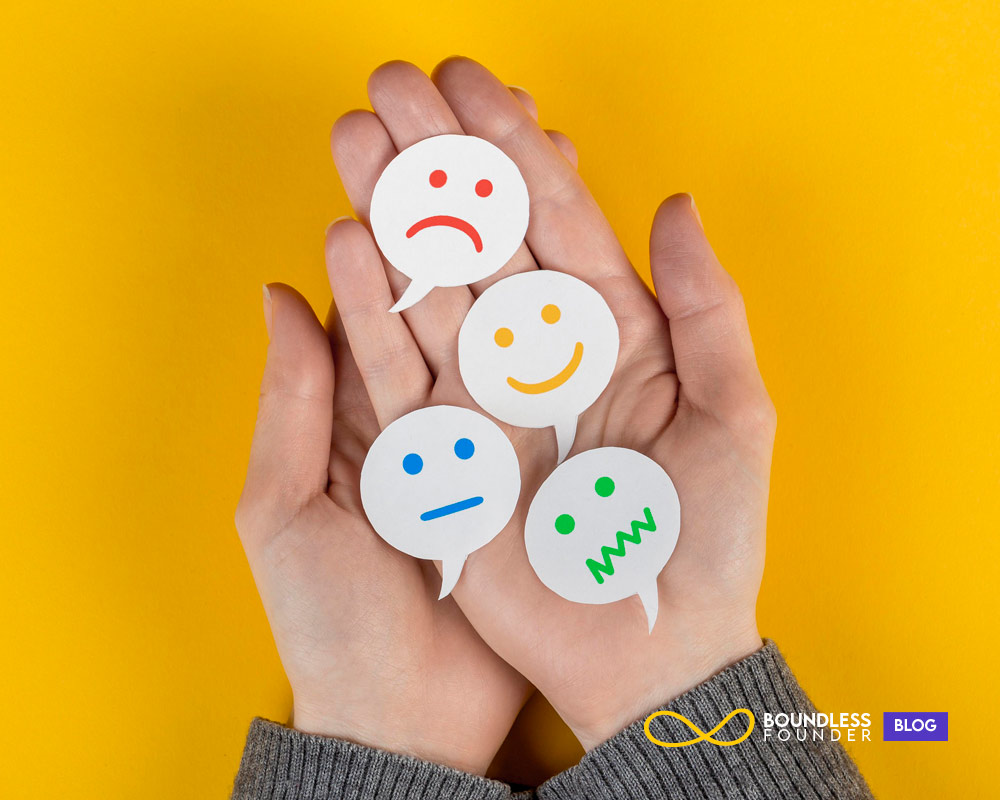

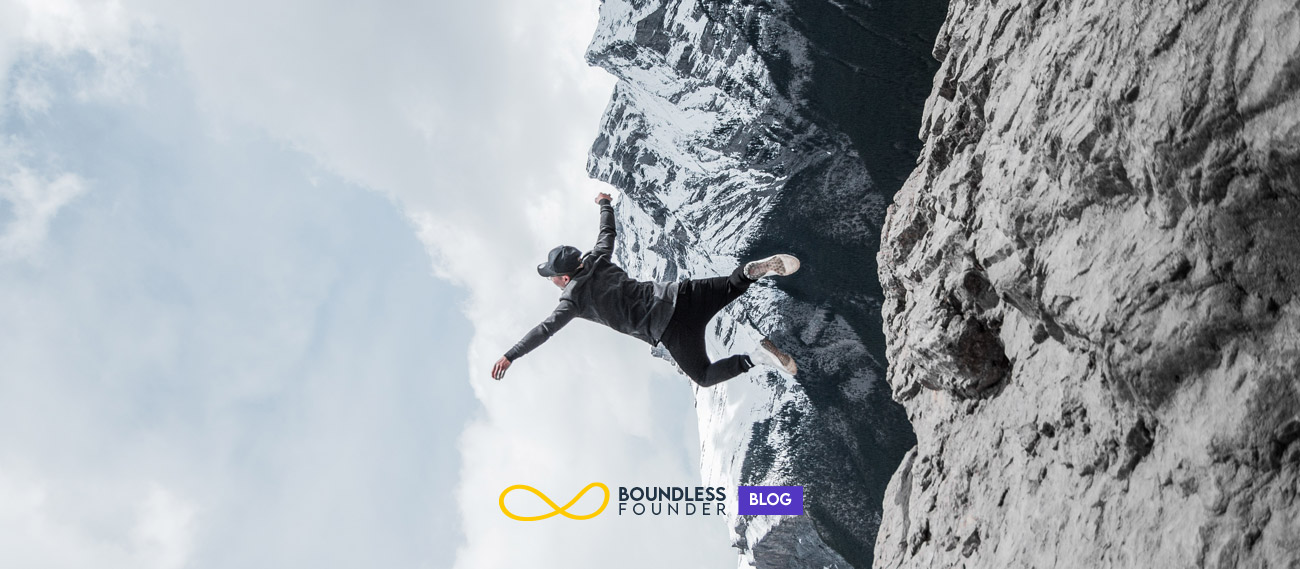
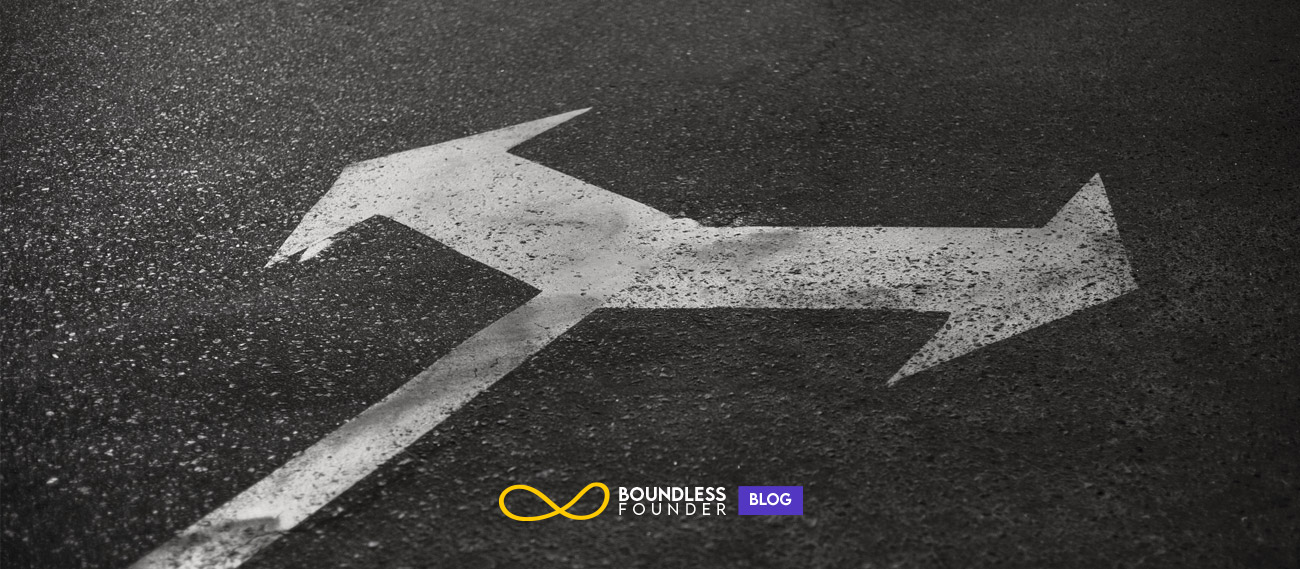




Responses